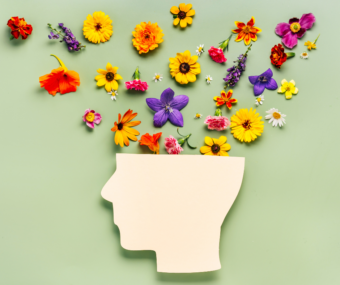Prioritize Your Mental Health: Why It’s Essential in Today’s World : Louise Adrian
Posted: May 8, 2024 | By: Dracy Dewar
 Mental health is crucial because it directly influences our overall well-being and quality of life. Neglecting it can lead to a cascade of detrimental effects, impacting not only our psychological state but also our physical health, relationships, and productivity. Without prioritizing mental health, individuals may experience increased stress, anxiety, depression, and even risk developing more severe mental illnesses. In today’s modern world, the prevalence of mental health issues is on the rise due to various factors such as societal pressures, technological advancements leading to constant connectivity and information overload, economic uncertainties, and the stigma surrounding mental health, which often prevents people from seeking help. Ignoring mental health can result in decreased resilience, impaired cognitive function, strained relationships, and diminished overall life satisfaction. Therefore, making mental health a priority is essential for cultivating a balanced and fulfilling life.
Mental health is crucial because it directly influences our overall well-being and quality of life. Neglecting it can lead to a cascade of detrimental effects, impacting not only our psychological state but also our physical health, relationships, and productivity. Without prioritizing mental health, individuals may experience increased stress, anxiety, depression, and even risk developing more severe mental illnesses. In today’s modern world, the prevalence of mental health issues is on the rise due to various factors such as societal pressures, technological advancements leading to constant connectivity and information overload, economic uncertainties, and the stigma surrounding mental health, which often prevents people from seeking help. Ignoring mental health can result in decreased resilience, impaired cognitive function, strained relationships, and diminished overall life satisfaction. Therefore, making mental health a priority is essential for cultivating a balanced and fulfilling life.
Here are 10 Tips to Help Enhance Mental Health:
- Prioritize Self-Care: Make self-care a priority by engaging in activities that promote relaxation and reduce stress, such as meditation, yoga, or spending time in nature.
- Stay Active: Regular physical activity has been shown to have numerous mental health benefits, including reducing symptoms of anxiety and depression. Aim for at least 30 minutes of exercise most days of the week. Fresh air and sunlight can make a huge difference with your mental health.
- Eat a Balanced Diet: Nutrition plays a significant role in mental health. Eating fresh foods rich in vitamin B-12 and Omega 3 fatty acids keep up levels of mood-regulating chemicals in the brain.
- Get Adequate Sleep: Lack of sleep can exacerbate mental health issues and impair cognitive function. Aim for 7-9 hours of quality sleep per night by practicing good sleep hygiene habits.
- Limit Alcohol and Caffeine: While alcohol and caffeine may provide temporary relief, excessive consumption can negatively impact mental health. Limit intake and consider healthier alternatives like herbal tea or infused water with hydration sticks.
- Connect with Others: Social support is crucial for mental well-being. Make time for meaningful connections with friends, family, or support groups, whether in person or virtually.
- Practice Mindfulness: Mindfulness techniques, such as deep breathing, meditation, or journaling, can help reduce stress and improve resilience to life’s challenges.
- Seek Professional Help: If you’re struggling with your mental health, don’t hesitate to seek support from a mental health professional. Therapy, counseling, or medication may be beneficial for managing symptoms and improving overall well-being.
- Engage in Activities You Enjoy: Make time for hobbies and activities that bring you joy and fulfillment. Whether it’s reading, painting, or playing music, doing things you love can boost mood and provide a sense of purpose. Picking up a new skill challenges you, increases your concentration levels and makes you feel good about learning something new.
- Supplement with the 90 essential minerals, vitamins, amino acids and essential fatty acids for optimum health and mental wellbeing
Recommended Supplements for Supporting Mental Health:
Omega-3 fatty acids: Found in fish oil supplements, omega-3s are crucial for brain health and may help reduce symptoms of depression and anxiety.
Vitamin D: Low levels of vitamin D have been linked to depression, so supplements may be beneficial, especially for those who live in regions with limited sunlight exposure.
B vitamins: B vitamins, particularly B6, B9 (folate), and B12, play a role in neurotransmitter synthesis and may help alleviate symptoms of depression and anxiety.
Magnesium: Magnesium deficiency has been associated with an increased risk of depression and anxiety, so supplementation may be beneficial for some individuals.
Probiotics: Gut health is closely linked to mental health, and probiotics may help improve mood by promoting a healthy balance of gut bacteria.
L-theanine: Found in green tea, L-theanine has calming properties and may help reduce stress and anxiety without causing drowsiness.
Ashwagandha: An adaptogenic herb, ashwagandha may help reduce stress and anxiety by modulating the body’s stress response.
Selenium: Essential for maintaining optimal brain function and may contribute to mental health by supporting cognitive function and mood regulation.
Supplements are not a replacement for a balanced diet, exercise, adequate sleep, and other healthy lifestyle practices. Additionally, individual needs vary, so it’s essential to work with a healthcare provider or health coach to determine the most suitable supplements and dosages for your specific circumstances.
Remember, improving mental health is a journey, and it’s essential to be patient and kind to yourself along the way. Small changes over time can lead to significant improvements in overall well-being.
Youngevity Product Support:
Synaptiv :https://youngevity.com/synaptiv-60-tablets.html
Selenium : https://youngevity.com/ultimate-selenium-90-capsules.html
Ultimate EFA’s: https://youngevity.com/au_en/ultimate-efa-trade-180-soft-gels.html
Soul/Smart: https://youngevity.com/brilliance-nootropic-reload.html
Healthy Body Digestion Pack: https://youngevity.com/healthy-body-digestion-pak-2-0.html
Ultimate Daily Classic : https://youngevity.com/ultimate-daily-classic-trade-90-tablets-762.html
These statements have not been evaluated by the Food and Drug Administration.
These products are not intended to diagnose, treat, cure or prevent any disease
Posted in:

